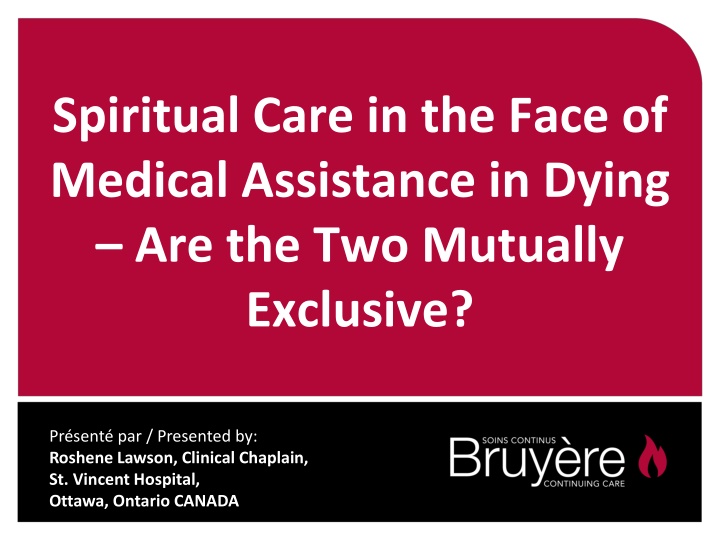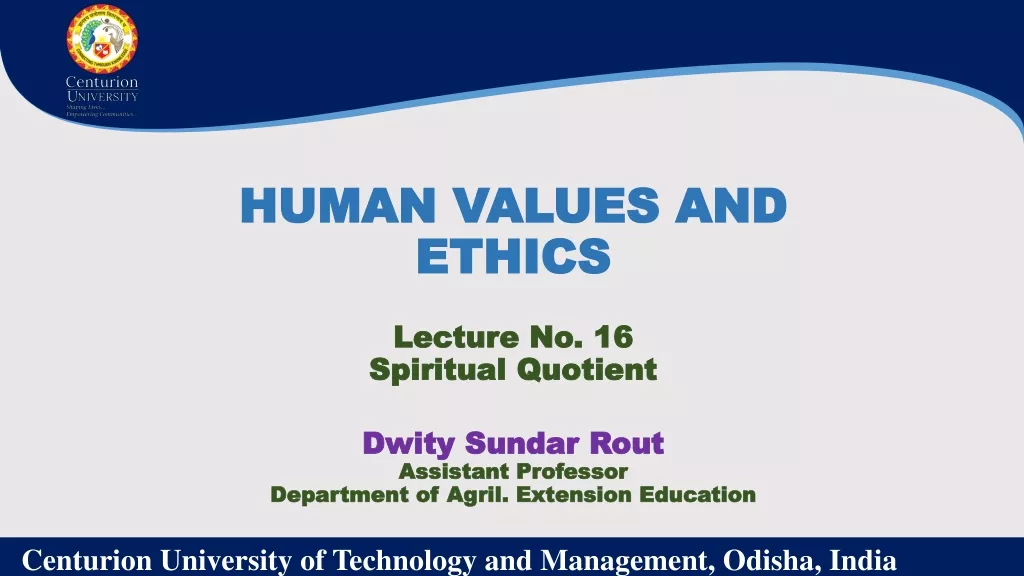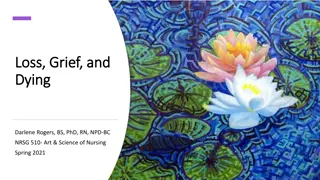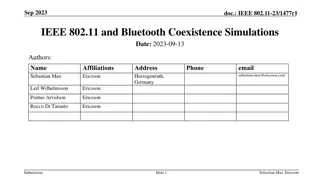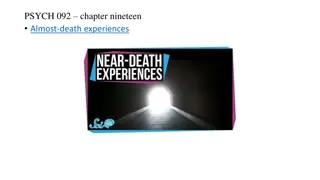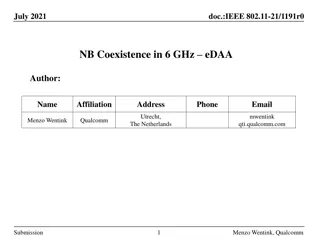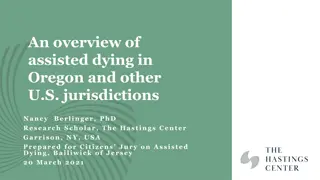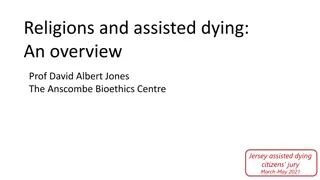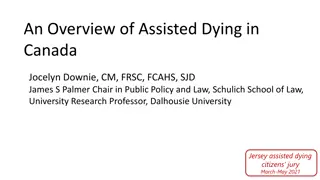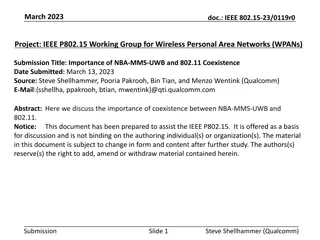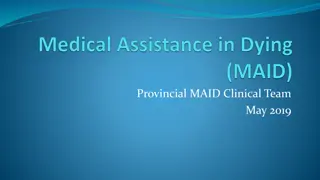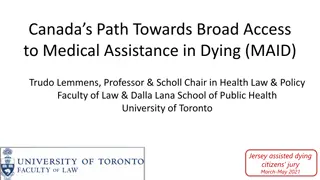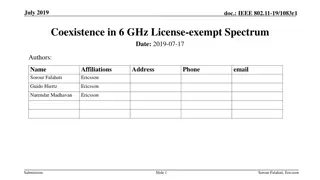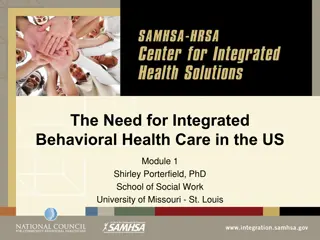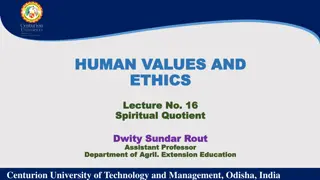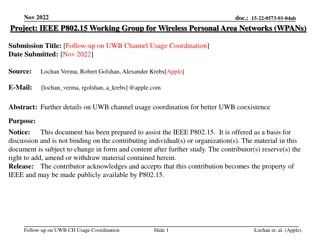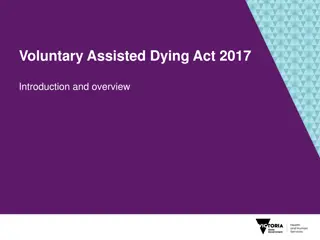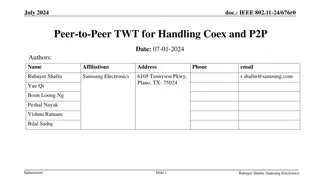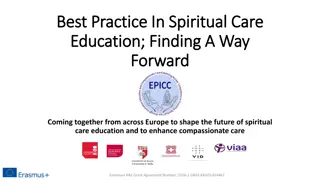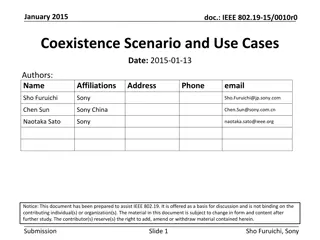Spiritual Care and Medical Assistance in Dying: Exploring Coexistence
This presentation delves into the intersection of spiritual care and medical assistance in dying (MAiD), questioning if they are mutually exclusive. Presented by Roshene Lawson, a Clinical Chaplain from St. Vincent Hospital in Ottawa, the workshop covers the challenges faced by chaplains post-MAiD legalization in Canada, emphasizing the pivotal role of spiritual care in the MAiD landscape and strategies for advocating its inclusion in the process. The session also provides an overview of MAiD in Canada, highlighting the legal framework, patient eligibility criteria, and the delicate balance necessary for healthcare providers respecting conscientious objection rights while ensuring access to mandated referrals.
Download Presentation

Please find below an Image/Link to download the presentation.
The content on the website is provided AS IS for your information and personal use only. It may not be sold, licensed, or shared on other websites without obtaining consent from the author.If you encounter any issues during the download, it is possible that the publisher has removed the file from their server.
You are allowed to download the files provided on this website for personal or commercial use, subject to the condition that they are used lawfully. All files are the property of their respective owners.
The content on the website is provided AS IS for your information and personal use only. It may not be sold, licensed, or shared on other websites without obtaining consent from the author.
E N D
Presentation Transcript
Spiritual Care in the Face of Medical Assistance in Dying Are the Two Mutually Exclusive? Pr sent par / Presented by: Roshene Lawson, Clinical Chaplain, St. Vincent Hospital, Ottawa, Ontario CANADA
Workshop Objectives MAiD in Canada Overview Challenges facing chaplains since MAiD Importance of the role of Spiritual Care in the MAiD landscape How to advocate for spiritual care in MAiD process
MAiD in Canada February 6, 2015: Criminal Code prohibition on Physician Assisted Death struck down by Supreme Court. (Carter decision)
MAiD in Canada Hospitals and health care providers have the right to conscientious objection. However, physicians must provide a referral (CPSO).
What MAiD Is The administering of a substance to a person, at their request, that causes their death. Can be clinician administered (MD or NP) - combo of IV drugs that reliably cause a comfortable death (seconds to minutes) Or prescribed (by MD or NP) for self administration - combo of po drugs that are self-administered and reliably cause a comfortable death (minutes to hours)
What MAiD Isnt Withdrawal of treatment. Example: Discontinuation of dialysis, ventilator. Decision not to use an available treatment. Example: Not using antibiotics for pneumonia. Palliative sedation.
Who is eligible for MAiD Patient must be eligible for health services funded by a government in Canada. Be a capable adult who is at least 18 years old. Provide clear, informed consent to medical assistance in dying after having made a voluntary request. This means that patients must be informed of alternative options for care, such as palliative care. Patients may withdraw their request at any time.
Who is eligible for MAiD Grievous and irremediable medical condition: serious and incurable illness, disease or disability advanced state of irreversible decline in capability experiencing enduring physical or psychological suffering that is intolerable and cannot be relieved under conditions that they consider acceptable natural death has become reasonably foreseeable
Challenges facing chaplains post MAiD Fear of losing religious endorsement Balancing personal religious beliefs and values vs. being present for a patient requesting MAiD Having a voice in the MAiD process Ensuring they follow the beliefs and values of whatever hospital they work in (e.g. Catholic, Jewish or other denominational hospitals)
What Do We Do As Chaplains? We provide presence and a safe space to speak what is being lived. We advocate for their story to be spoken. Through a dialogical process we help patients seek understanding of their own story enabling them to make authentic decisions for themselves and find peace there.
Spiritual Crises in MAiD Existential angst Fear of suffering Loss/Grief Shame Forgiveness Closure
Case Study #1 Spiritual Crises Presented: Guilt Shame Seeking Forgiveness
Case Study #2 Spiritual Crises Presented: Loss Grief Existential crisis who am I if I can t do?
Case Study #3 Spiritual Crises Presented: Fear of suffering Fear of death Existential Angst is this pain my life? Can I bear it?
Case Study #4 Spiritual Crises Presented: Grief Loss Shame Loneliness
Advocating for Spiritual Care in the MAiD Landscape Educate Communicate Take the lead Withhold judgement Keep focused on patient-centred/relationship-centred care
